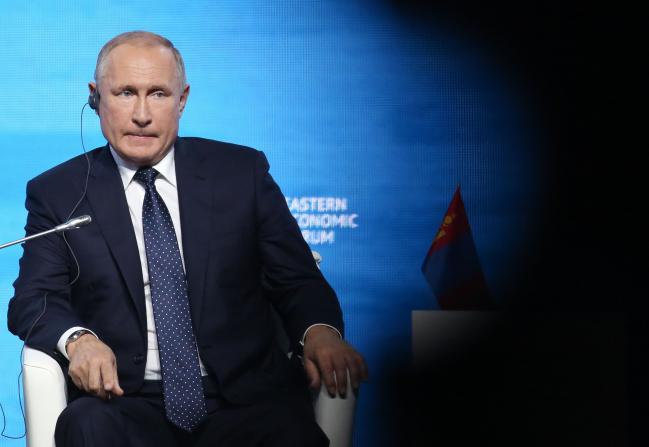(Bloomberg) -- A year ago, Vladimir Putin said Russia needs an “economic breakthrough,” telling his countrymen in his annual press conference that the outlook was finally turning up.
It didn’t happen.
When Putin takes to the airwaves Thursday for this year’s marathon meeting with the media, he may not want to mention that the growth of 1.8% that he forecast then for 2019 isn’t likely to exceed 1.3%. The long-awaited rebound in living standards he promised also hasn’t materialized.
His government is hoping the performance next year will be better, when higher government spending and lower interest rates help boost growth to around 2%. Putin’s goal of 3% plus remains out of reach, according to economists.
“That really could be a challenge,” said Sofya Donets, an economist at Renaissance Capital in Moscow, who has one of the most optimistic forecasts for 2020. “We’re an aging economy so would need a huge restructuring of the economy to drive growth higher.”
Putin is hoping for faster growth after five years of falling incomes have weighed on his popularity ratings, fueling a raft of public protests this year. Data due on Wednesday is expected to show a 3.3% acceleration in real wages in October, potentially improving the outlook for the economy for next year.
BE Primer: Russia’s Economy Set for Mild Acceleration Into 2020
A $400 billion infrastructure program, dubbed the National Projects, that was meant to get under way this year could have helped, but was delayed due to increased scrutiny over how the funds should be allocated. “It sounds like a lot,” Putin said earlier this month when the head of Russia’s Audit Chamber pointed out that about 1 trillion rubles ($15 billion) has been under spent from the budget this year.
What Our Economists Say:
“The latest data support our view that demand is reviving in Russia -- though it’s still not roaring back to life.”
Scott Johnson, Bloomberg Economics
Russia’s full year economic growth is expected at around 1.2% in 2019, expanding to 1.6% next year, according to a Bloomberg survey. Industrial production expanded just 0.3% in November, well short of the median estimate of 2.6% in a Bloomberg survey. The Economy Ministry warned the weakness has continued into December.
The main good news on the economic front this year has been the decline in inflation, which is now below the central bank’s 4% target again after a tax increase at the start of the year boosted it. But real disposable incomes have been slow to recover, despite a change in the way the data are calculated this year that resulted in better figures.
“Next year will be crucial in terms of whether Putin’s goal can be met,” said Tatiana Evdokimova, chief Russia analyst at Nordea Bank in Moscow. “The government will need to show it’s capable of getting more infrastructure projects in the pipeline.”
